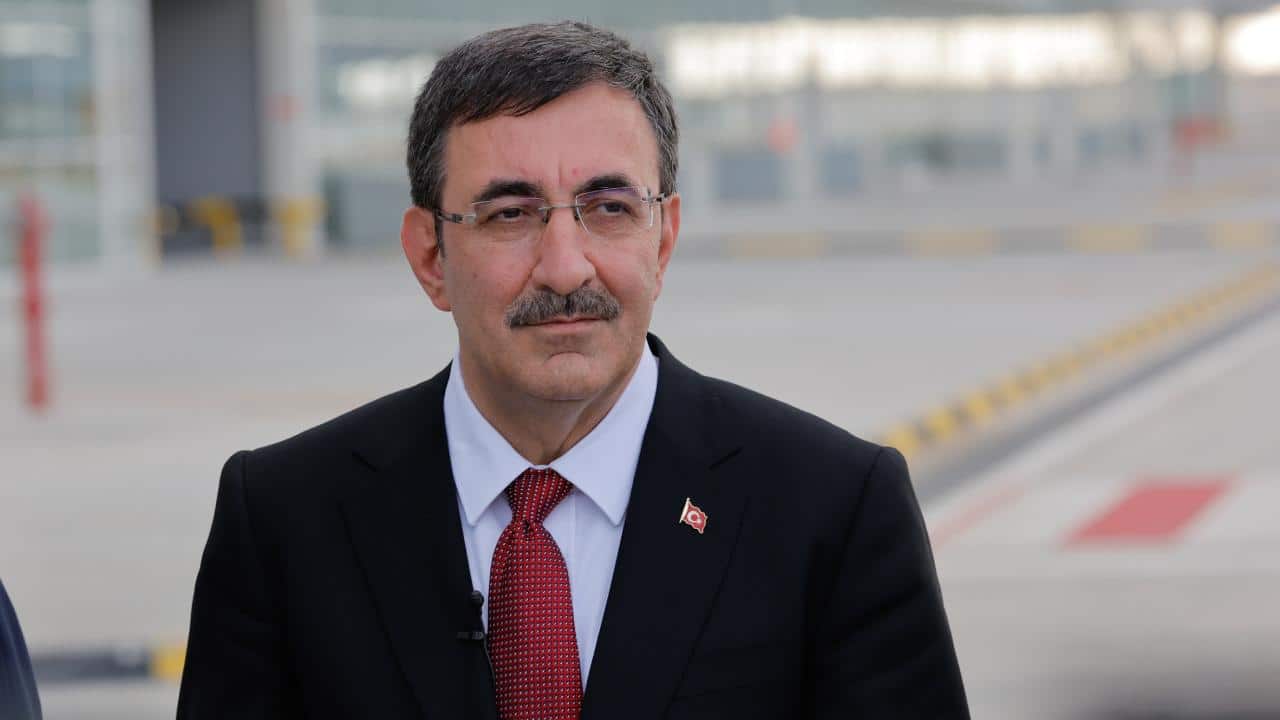Turkey’s Vice President Cevdet Yilmaz on Friday promised to “ensure the sustainability of the energy supply” in the north.
Speaking during a visit to the north, he said Turkey plans to build a “sustainable energy infrastructure which not only meets today’s needs, but also ensures future growth and prosperity.”
“Therefore, we attach great importance to the issue of energy supply in terms of Cyprus’ security and development,” he said.
He also touched on the region’s geopolitical situation, saying, “recent developments have once again revealed the importance of stability in the Eastern Mediterranean.”
He said more negotiations on the Cyprus problem would be “out of the question unless the Turkish Cypriots’ inherent rights, namely sovereign equality and equal international status, are secured.”
The issue of energy in the north currently centres on problems faced by the Teknecik power station near Kyrenia, with the north’s electricity authority Kib-Tek paying Turkish private energy firm Aksa and the Republic’s electricity authority (EAC) millions of euros every month to ensure the lights remain on.
However, as the north’s ‘prime minister’ Unal Ustel reiterated when speaking to journalists upon Yilmaz’s arrival on Friday, plans are afoot to lay an undersea cable which would connect the north to Turkey’s electricity grid.
This, he said, will “solve the energy problem completely”.
Following these statements, a meeting on the matter of “energy security and supply” was held at Turkish Cypriot leader Ersin Tatar’s official residence in northern Nicosia on Friday afternoon.
The meeting was attended by Tatar, Yilmaz, Ustel, the north’s ‘parliament speaker’ Zorlu Tore, Turkey’s ambassador in the north Yasin Ekrem Serim, and the leaders of all the north’s ‘parliamentary’ political parties, the CTP’s Tufan Erhurman, the DP’s Fikri Ataoglu, and the YDP’s Erhan Arikli.
Tatar had earlier said the cable will “mark a new era”, while Ustel described it as the “project of the century”, though questions remain over the project’s schedule.
The cable was due to be completed in 2028, though this timeline was based on the planning phase having finished and construction having begun in 2024.
This timeline has not been publicly mentioned since December last year, and as such, and given that construction has not yet begun, it is possible that the project has faced some delays.







Click here to change your cookie preferences